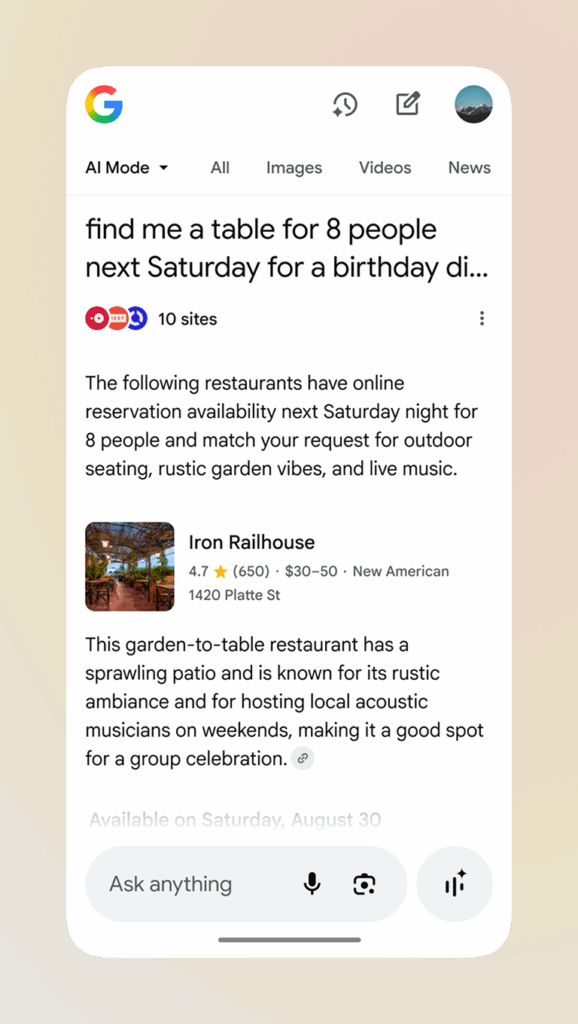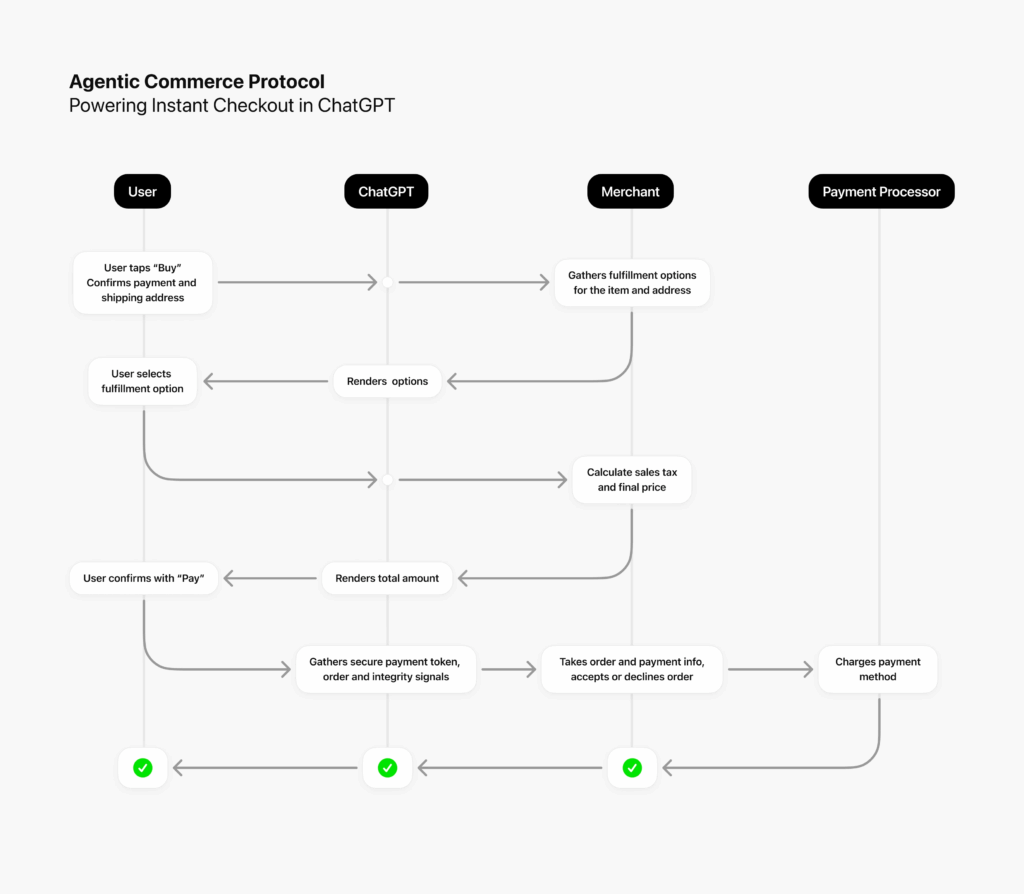Local Memo: Agentic Reservations in AI Mode, ChatGPT Instant Checkout, TikTok’s Survival
Agentic Restaurant Reservations and More Added to AI Mode
The News Google is launching a new experimental feature in AI Mode that lets users book a restaurant reservation using a Google agent that matches user criteria to nearby restaurants. The feature can be enabled in Google Labs. The user enters a request, as shown in the screenshot, and the Google agent suggests matching restaurants that have availability at the specified time. Users are then directed to the restaurant’s booking page to complete the reservation.
Also in AI Mode news, Google has brought visual search to the public version of the AI Mode interface. Users can see visual results (similar to Google Images) when searching and can also upload images to initiate a search. Google points to shopping as a primary use case for the new functionality, noting that users can begin a shopping search conversationally, scroll through visual results, refine the results to find exactly what they want, and complete a purchase—all using the AI Mode visual interface.
The technology behind this update involves what Google calls a “visual search fan-out” technique, whereby AI Mode analyzes multiple features of an image and uses them to initiate multiple searches, similar to the query fan-out technique that is a fundamental feature of AI Mode.
What This Means Google noted earlier this year that AI Mode would be a staging ground for features that, if they prove popular, would make their way into the core search interface. As we can see, Google is leaning heavily into use cases that are either local in nature or (in the case of shopping) could involve a local store. Google’s implementation of local features, even when experimental, may signal what the future user experience in search will look like.

ChatGPT Launches Instant Checkout
The News Speaking of shopping with AI, OpenAI has launched Instant Checkout, a feature that lets users buy single items (shopping carts for multiple items are coming soon) in the ChatGPT interface. At launch, users can buy items on Etsy using this feature, with Shopify integration rolling out soon. OpenAI has also announced that it is open-sourcing a new Agentic Commerce Protocol, developed in collaboration with Stripe, that merchants can use to make their product inventories available to AI agents. Merchants are invited to apply if they want to utilize the Agentic Commerce Protocol to make their products buyable via ChatGPT.
Users of both free and paid ChatGPT tiers will see the new shopping experience. Product recommendations are based purely on relevance, OpenAI says, with no current opportunities for paid placement. Purchases can be completed without leaving the chat session, and users can pay with the credit card on file in their ChatGPT account. Products with Instant Checkout available may be shown alongside those that don’t offer the feature, though the announcement implies that Instant Checkout may be used as a ranking factor.
What This Means ChatGPT is angling to be the next big player in online commerce. Whereas Amazon is the destination for traditional product-centric search and Google has innovated by integrating shopping into the general search experience, OpenAI has the opportunity to define a new kind of shopping that is conversational and agentic in nature—and that consumers may prefer. However, as we’ve seen, Google is not standing still, and so the AI shopping race is on. Marketers need to consider adapting to both Google’s and OpenAI’s protocols to market their products to AI shoppers.
Deal Will Keep TikTok in U.S.
The News It appears that TikTok will be allowed to continue operating in the U.S. under the terms of a new $14 billion deal. As outlined in an executive order signed by President Trump, TikTok’s parent company, ByteDance, would retain a 20% stake in a new joint venture that would control TikTok’s U.S. operations. Oracle, Silver Lake, MGX, and others are named as stakeholders in the new venture. China has yet to approve the deal; the Department of Justice has suspended any further actions to ban TikTok until December 16 pending finalization of the agreement.
What This Means The threat to ban TikTok in the U.S. due to security concerns seems to be over at this point, though we won’t know for sure until the deal is finalized. In the meantime, the platform continues to be a destination for 150 million active U.S. users to create and discover content of all kinds, making it an important channel for marketing.




